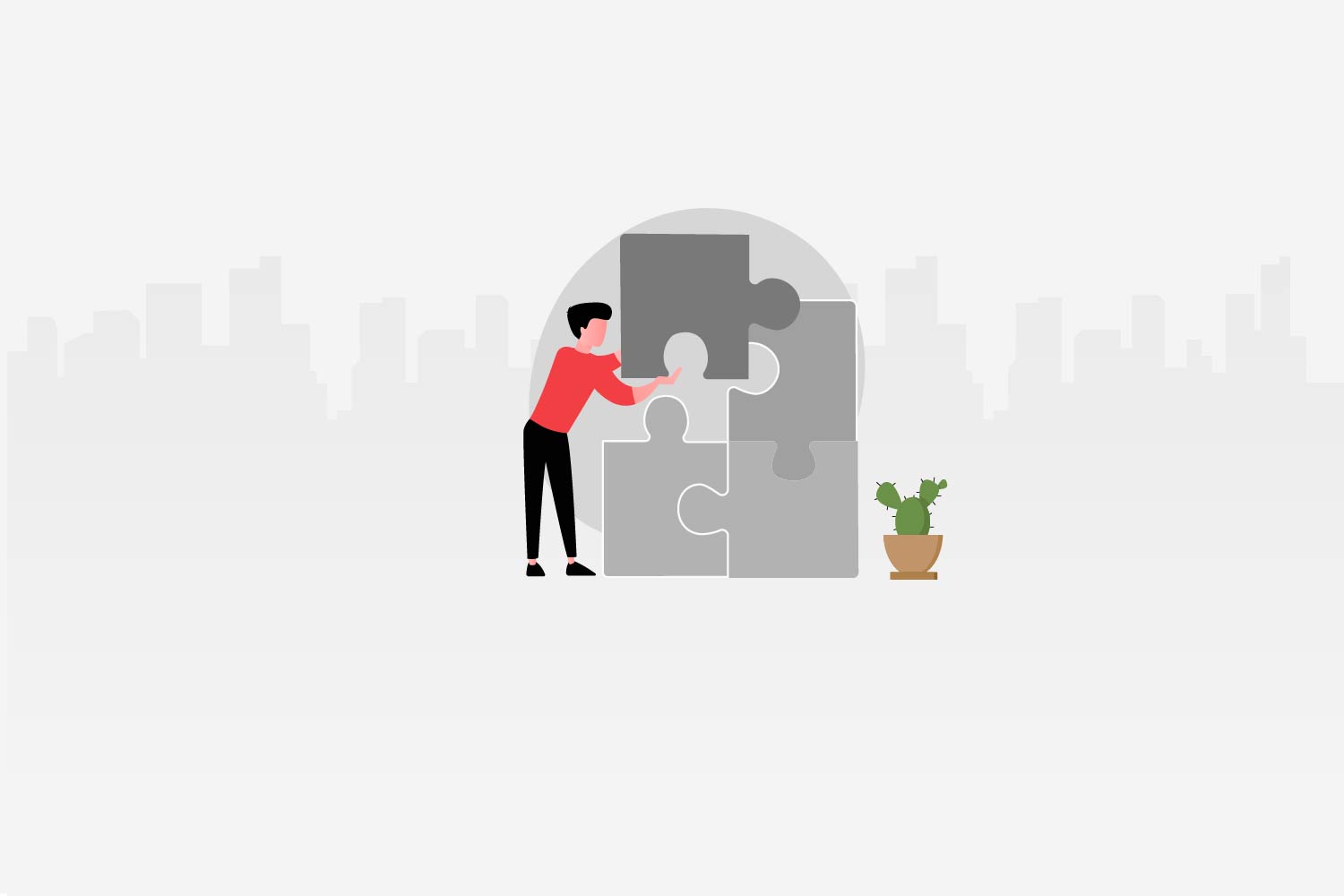Hiring the right employees for customer service roles is crucial for any organization aiming to provide exceptional customer experiences.
Did you know that companies with superior customer service outperform their competitors by 80% in terms of customer satisfaction? To find the best fit for these positions, evaluating specific skills is essential.
In this blog, we will explore five key skills that are essential to evaluate when hiring customer service professionals: communication skills, problem-solving and conflict resolution abilities, empathy and emotional intelligence, time management and prioritization skills, and teamwork and collaboration capabilities.
By assessing these skills, organizations can ensure they select candidates who possess the necessary qualities to excel in customer service roles. This blog will delve into each skill, providing insights into why they are important and how they can benefit the hiring process.
5 tips to evaluate customer service skills
When hiring for any position, evaluating basic skills is crucial to ensure you find the best fit for the role. Basic skills act as a foundation upon which employees can develop and excel in their job responsibilities. Whether you’re hiring for technical roles, customer service positions, or creative endeavors, evaluating basic skills provides valuable insights into a candidate’s potential and suitability for the job.
Assessing basic skills allows you to gauge a candidate’s competency and proficiency in fundamental areas relevant to the role. These skills can vary depending on the position, but commonly include communication, problem-solving, critical thinking, adaptability, and teamwork. Strong communication skills, for instance, ensure effective collaboration and interaction with colleagues and clients, while problem-solving and critical thinking abilities enable employees to tackle challenges and contribute to innovative solutions. Adaptability and teamwork skills facilitate seamless integration within teams and enable employees to thrive in dynamic work environments.
By evaluating basic skills, you can identify candidates who possess the necessary aptitude to succeed in their roles, reducing the risk of hiring mismatches. Furthermore, assessing these skills helps you create a well-rounded and diverse workforce that can collectively contribute to the growth and success of your organization.
Overall, evaluating basic skills is essential for hiring managers to identify the best fit for relevant roles, enabling companies to build teams that possess the necessary capabilities to excel and drive organizational success.
Communication skills assessment
When evaluating customer service skills, assessing an individual’s communication abilities is of paramount importance. Effective communication is the cornerstone of exceptional customer service, as it ensures clear and accurate exchange of information, builds rapport with customers, and resolves issues efficiently. Here are some key aspects to consider when assessing communication skills:
Verbal Communication: Evaluate how well candidates express themselves verbally, including their clarity, tone, and ability to articulate ideas succinctly. Look for candidates who can adapt their communication style to match the needs and preferences of different customers.
Active Listening: Assess a candidate’s ability to actively listen and understand customer concerns. Look for indicators such as maintaining eye contact, nodding or paraphrasing to confirm understanding, and responding appropriately to customer queries.
Written Communication: Evaluate candidates’ written communication skills through written assessments or samples. Strong writing skills are crucial for crafting professional and concise email responses, chat interactions, or social media communication.
Empathy and Understanding: Gauge candidates’ capacity to empathize with customers and understand their needs and emotions. Look for individuals who can show genuine empathy and respond in a compassionate manner, even in challenging situations.
Non-Verbal Communication: Observe candidates’ body language, facial expressions, and overall non-verbal cues during mock customer service scenarios or interviews. Positive non-verbal communication can enhance customer interactions and convey attentiveness and approachability.
By thoroughly assessing communication skills, you can identify candidates who possess the ability to effectively communicate with customers, understand their needs, and provide exceptional service. Strong communicators can foster positive relationships, diffuse tense situations, and leave customers satisfied with their interactions.
Problem-solving and conflict resolution evaluation
Evaluating the problem-solving and conflict resolution skills of candidates is crucial for selecting customer service professionals who can effectively navigate challenging situations. These skills enable them to address customer concerns, find innovative solutions, and maintain positive relationships. Here are key factors to consider when assessing problem-solving and conflict resolution abilities:
Analytical Thinking: Assess candidates’ ability to analyze complex problems, break them down into manageable components, and identify root causes. Look for individuals who can demonstrate a structured and logical approach to problem-solving.
Creativity and Innovation: Evaluate candidates’ capacity to think outside the box and generate unique ideas or solutions. Effective problem solvers can offer innovative approaches to address customer needs or overcome obstacles.
Decision-Making: Assess candidates’ decision-making skills by presenting them with hypothetical scenarios or case studies. Look for individuals who can weigh pros and cons, consider available resources, and make sound decisions within a reasonable timeframe.
Conflict Resolution: Evaluate candidates’ ability to handle conflicts or difficult situations with customers. Look for individuals who can remain calm, actively listen to customer concerns, and find mutually beneficial resolutions while maintaining professionalism.
Adaptability: Assess candidates’ adaptability in dealing with unexpected challenges or changing customer demands. Look for individuals who can quickly adjust their strategies, remain flexible, and find effective solutions in dynamic environments.
By evaluating problem-solving and conflict resolution skills, you can identify candidates who possess the ability to think critically, resolve issues efficiently, and maintain positive customer relationships. Effective problem solvers can provide timely resolutions, enhance customer satisfaction, and contribute to the overall success of your customer service team.
Empathy and emotional intelligence observation
Assessing a candidate’s empathy and emotional intelligence is crucial in customer service roles as it enables professionals to connect with customers on an emotional level and provide personalized support. When evaluating empathy and emotional intelligence, consider the following:
Empathetic Listening: Observe candidates’ ability to actively listen and understand customers’ emotions and concerns. Look for individuals who can empathize with customers and respond in a compassionate and supportive manner.
Emotional Regulation: Evaluate candidates’ capacity to manage their emotions and remain calm in challenging situations. Look for individuals who can handle customer frustration or dissatisfaction with composure and professionalism.
Customer Perspective: Assess candidates’ ability to view situations from the customer’s perspective. Look for individuals who can anticipate customer needs, identify pain points, and provide tailored solutions.
Conflict De-escalation: Observe how candidates handle conflicts or difficult interactions. Look for individuals who can defuse tense situations, show empathy towards upset customers, and work towards mutually satisfactory resolutions.
Positive Language and Tone: Evaluate candidates’ choice of language and tone when interacting with customers. Look for individuals who use positive and reassuring language, avoiding jargon or technical terms that may confuse or frustrate customers.
By assessing empathy and emotional intelligence, you can select candidates who can build strong relationships with customers, demonstrate understanding and compassion, and provide exceptional service that meets customers’ emotional needs.
Time management and prioritization assessment
Effective time management and prioritization skills are vital for customer service professionals to handle multiple tasks, meet deadlines, and ensure timely resolution of customer issues. When evaluating time management and prioritization, consider the following:
Task Organization: Assess candidates’ ability to organize and structure their work effectively. Look for individuals who can break down tasks into manageable steps, set realistic timelines, and create action plans.
Deadline Adherence: Evaluate candidates’ track record of meeting deadlines in previous roles or academic settings. Look for individuals who can consistently complete tasks on time and demonstrate reliability.
Multitasking Ability: Observe candidates’ capacity to handle multiple tasks simultaneously without compromising quality or customer service. Look for individuals who can effectively prioritize and allocate their time and resources.
Problem Prioritization: Assess candidates’ skill in prioritizing customer issues based on urgency and impact. Look for individuals who can identify and address high-priority problems promptly, ensuring customer satisfaction.
Time Optimization Strategies: Evaluate candidates’ approach to optimizing their time and minimizing distractions. Look for individuals who can use techniques such as time blocking, setting realistic goals, and minimizing interruptions to enhance productivity.
By evaluating time management and prioritization skills, you can select candidates who can efficiently manage their workload, handle competing demands, and deliver timely and high-quality customer service. Effective time managers can ensure customer satisfaction, maintain productivity, and contribute to the overall success of the customer service team.
Teamwork and collaboration evaluation
Assessing a candidate’s ability to work effectively in a team and collaborate with colleagues is crucial for customer service roles that require seamless coordination and cooperation. When evaluating teamwork and collaboration skills, consider the following:
Communication and Active Listening: Assess candidates’ ability to communicate clearly and actively listen to their teammates. Look for individuals who can express their ideas, provide constructive feedback, and actively engage in discussions.
Collaborative Problem-Solving: Evaluate candidates’ capacity to collaborate with others in solving problems or addressing customer issues. Look for individuals who can contribute ideas, seek input from teammates, and work towards mutually beneficial solutions.
Flexibility and Adaptability: Assess candidates’ ability to adapt to changing team dynamics or work environments. Look for individuals who can adjust their approach, embrace new ideas, and collaborate effectively with diverse personalities.
Responsibility and Accountability: Evaluate candidates’ sense of responsibility towards team goals and their ability to take ownership of their tasks. Look for individuals who can deliver on commitments, meet deadlines, and proactively support their team members.
Conflict Resolution: Observe candidates’ ability to navigate conflicts within a team. Look for individuals who can address conflicts constructively, seek common ground, and maintain positive working relationships.
Collaborative Decision-Making: Assess candidates’ approach to making decisions within a team setting. Look for individuals who can consider multiple perspectives, involve teammates in decision-making processes, and reach consensus when needed.
By evaluating teamwork and collaboration skills, you can identify candidates who can effectively collaborate, contribute to a positive team dynamic, and work towards shared goals. Strong team players can enhance cooperation, foster a supportive work environment, and deliver exceptional customer service through collective efforts.
Conclusion
Evaluating the fundamental skills of candidates when hiring for customer service roles is crucial to find the best fit for the job. By assessing communication skills, problem-solving and conflict resolution abilities, empathy and emotional intelligence, time management and prioritization skills, and teamwork and collaboration capabilities, organizations can ensure they select individuals who possess the necessary qualities to excel in providing exceptional customer experiences.
Testlify offers a range of assessments and challenges that allow you to gauge candidates’ knowledge, customer service skills, and creativity in real-world scenarios. With Testlify, you can administer real-world challenges that simulate the actual assessment process, giving candidates the opportunity to showcase their skills and approach to customer service. The platform provides a structured and standardized assessment process, allowing you to compare candidates objectively and make informed decisions. By incorporating Testlify into your hiring process, you can ensure a more comprehensive and reliable evaluation of candidates’ customer service skills, ultimately helping you identify the most qualified individuals for your team.
With our extensive test library, you can objectively evaluate candidates’ abilities, ensuring you shortlist the most talented individuals efficiently. Ready to unlock the potential of your hiring process? Book a free 30-minute live demo with Testlify. Our expert team will guide you through the platform, showcasing relevant skill tests tailored to your organization’s needs. With our support, you can streamline candidate selection, saving valuable time and resources.








